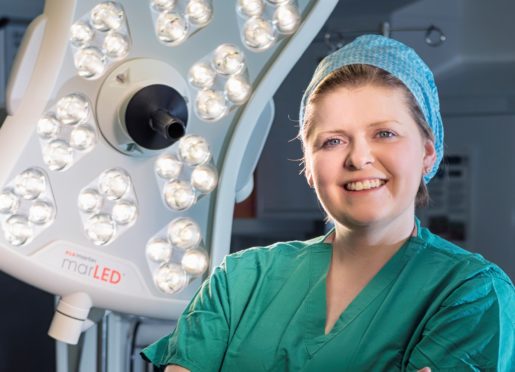New research carried out by Aberdeen scientists have found women are no more likely to have a stillbirth just because their mother may have had one.
The study from Aberdeen University, which is the first ever to look at inherited predisposition to stillbirth between mothers and daughters, examined data from more than 26,000 pairs of relatives.
Although several risk factors have been identified as being responsible, many cases of stillbirth remain unexplained.
Previous evidence has suggested that placental dysfunction, which includes pre-eclampsia, is inherited from mother to daughter.
But, the study found no link between a mothers’ history of stillbirth or miscarriage and stillbirth in the daughters.
Figures going back to 1949 from the Aberdeen Maternity and Neonatal Databank were used relating to all deliveries and reproductive outcomes from Aberdeen Maternity Hospital.
The researchers found 384 daughters had a history of one or more stillbirth, with 26,404 having only live births.
Dr Andrea Woolner, a clinical lecturer from Aberdeen University who led the study, said: “The objective of this study was to determine whether a history of stillbirth in mothers is associated with an increased risk of stillbirth in daughters.
“Using the fantastic resource that is the Aberdeen Maternity and Neonatal Databank we were able to analyse a large number of women and daughter pairs and their birth outcomes.
“From our analyses, there does not appear to be an increased risk of stillbirth in daughters whose mothers had a history of stillbirth or miscarriage. To our knowledge, this is the first observational study to investigate stillbirth risk transmitted from mother to daughter.
“Stillbirth and miscarriage are obviously devastating for the parents and whilst many aspects remain unexplained, it is hoped research such as this can help us understand more and feed into supportive advice that can be provided to couples.”
